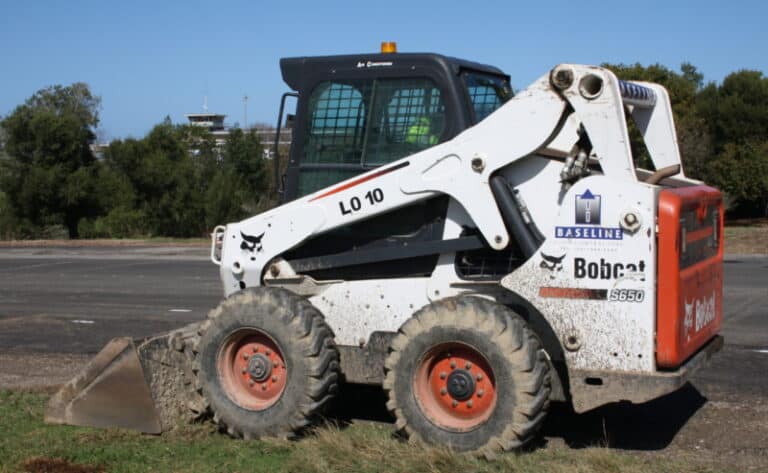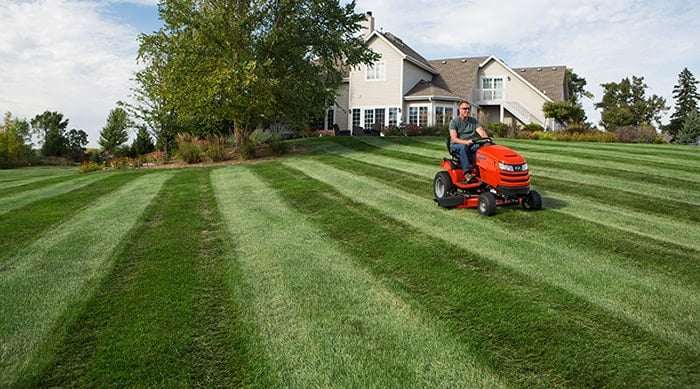What Type of Grease Should You Use for Your Mower Deck?

Regular cleaning and greasing is one of the most important tasks you can do with regard to your lawn mower, because it keeps the spindles operating properly, and it protects the mower’s parts from rusting and wearing out sooner than they should. AET Systems says, “This means keeping your lawn mower clean on a regular basis, but also greasing it when the time is right.” By keeping your mower safe from water and other fluids, grease for mower deck can prolong the life of your mower and ensure that you get a good clean cut every time.
The big question is – what type of grease should be used on your mower deck? You can find the answer to this question by reading the content below, and along the way, you’ll probably also pick up some tips on how to keep your mower operating at its absolute best.
Types of grease for use on mower decks
There are several different types of mower grease, and the difference between them lies generally in the ingredients used to produce them. For instance, some types of mower grease contain predominantly polyurea, which is an elastomer that’s great for providing a protective coating. Some other grease types are composed mainly of lithium, and still others have a formula that’s mostly a combination of lithium and molybdenum disulfide. These types will basically boil down to one of four kinds of mower grease: lithium grease, marine grease, synthetic grease, and polyurea multi-purpose grease. Let’s take a closer look at each of these.
Polyurea multi-purpose grease
This kind of grease can be used with any standard-sized lawn mower grease gun, and it is especially good for purposes such as U-joints and axle bearings. The service ratings for this type of grease are -15 degrees Fahrenheit to 380 degrees Fahrenheit, NLGI Grade 2, and GC-LB. It’s a very effective lubricant containing no type of soap of any kind, and it has been widely used for a number of purposes beyond lawn mowers. Some of the different areas of application for polyurea grease include electric motors and bearings, automotive uses, off-highway acceleration joints, and locks for application fields.
Synthetic grease
Synthetic grease can be comprised of petroleum oil bases, synthetic glycerin, and sometimes even a mixture of synthetic materials with different kinds of soap. Additives are sometimes included as well, and if so, they will be synthetic oils or greases with an artificial basis. Greases of this type are generally available in moisture-resistant varieties and are usable at many different extremes of temperature. These kinds of greases can be used to lubricate rubber components, since they don’t weaken or cause deterioration of any kind to the rubber.
Marine grease
This is an adaptable grease made of lithium complexes and is rated at National Lubricating Grease Institute (NLGI) Grade 2. It is very sticky and is characterized by its green color. It is very effective for combating rust and corrosion in settings where marine or saltwater action comes into play. For that reason, it is often used to lubricate boat propeller shafts, but many people also use it to grease their lawn mowers. Marine grease is engineered to last a very long time and is made from a number of solid materials that don’t easily break down.
Lithium grease
According to Inside the Yard, lithium grease is one of the most versatile types of grease currently being used, especially by homeowners for at-home types of jobs. One of its most appealing features is its ability to withstand very low temperatures and extremes of pressure. It can be used to remove rust from your lawn mower, and to release hinges that have become stuck. Although it has quite a wide range of applications, most of them are restricted to home usage and home equipment. For the most part, these types of grease are made of various types of oil, used in conjunction with lithium soap thickeners. Molybdenum disulfide is one of the common components used to produce lithium greases.
How often should your mower be greased?
Teacherscollegesj says that “You should grease your lawn mower twice each season”, and that should be adequate to provide a level of protection for the components, as well as to lubricate those parts requiring it. However, if you have your own lawn-mowing business and you use the equipment almost every day in the warm-weather seasons, you should probably grease the mowers every day.
While that might seem like a bit of overkill, you should bear in mind that your mower’s parts are being stressed every day, that parts may encounter daily friction which requires lubrication, and that protection is needed for many exposed parts. This is especially true if you mow lawns without waiting for them to be dry, because heavy dew on the grass can definitely affect your mower adversely. This makes it even more important that you use grease for mower deck.
Best greases for your lawn mower
According to Why Not Reviews, the best greases you can use on your lawn mower can be selected by observing the following selection criteria:
- Brand – for the most part, you’re safer to stay with an established brand, because you’ll be able to trust the formula and that will help to ensure that your mower stays protected.
- Heat protection – any good grease that you choose should be capable of limiting the buildup of heat in your lawn mower, because high heat can cause damage to your mower.
- Pricing – while pricing should not be your #1 criterion for selecting a good grease, you should make sure that whichever grease you purchase, it’s a cost-effective type, which means you get good value for the money.
- Number of possible uses – any grease you choose should be capable of serving multiple roles, even around your home. While your primary purpose might be to keep your lawn mower operating efficiently, you might also need to grease other equipment around the house.
- Corrosion protection – whatever grease you choose should be capable of resisting rust that might form on your mower. To ensure your chosen grease has this capability, check the labels to see that it contains water-resistant ingredients, anti-rust properties, and anti-oxidation properties.






